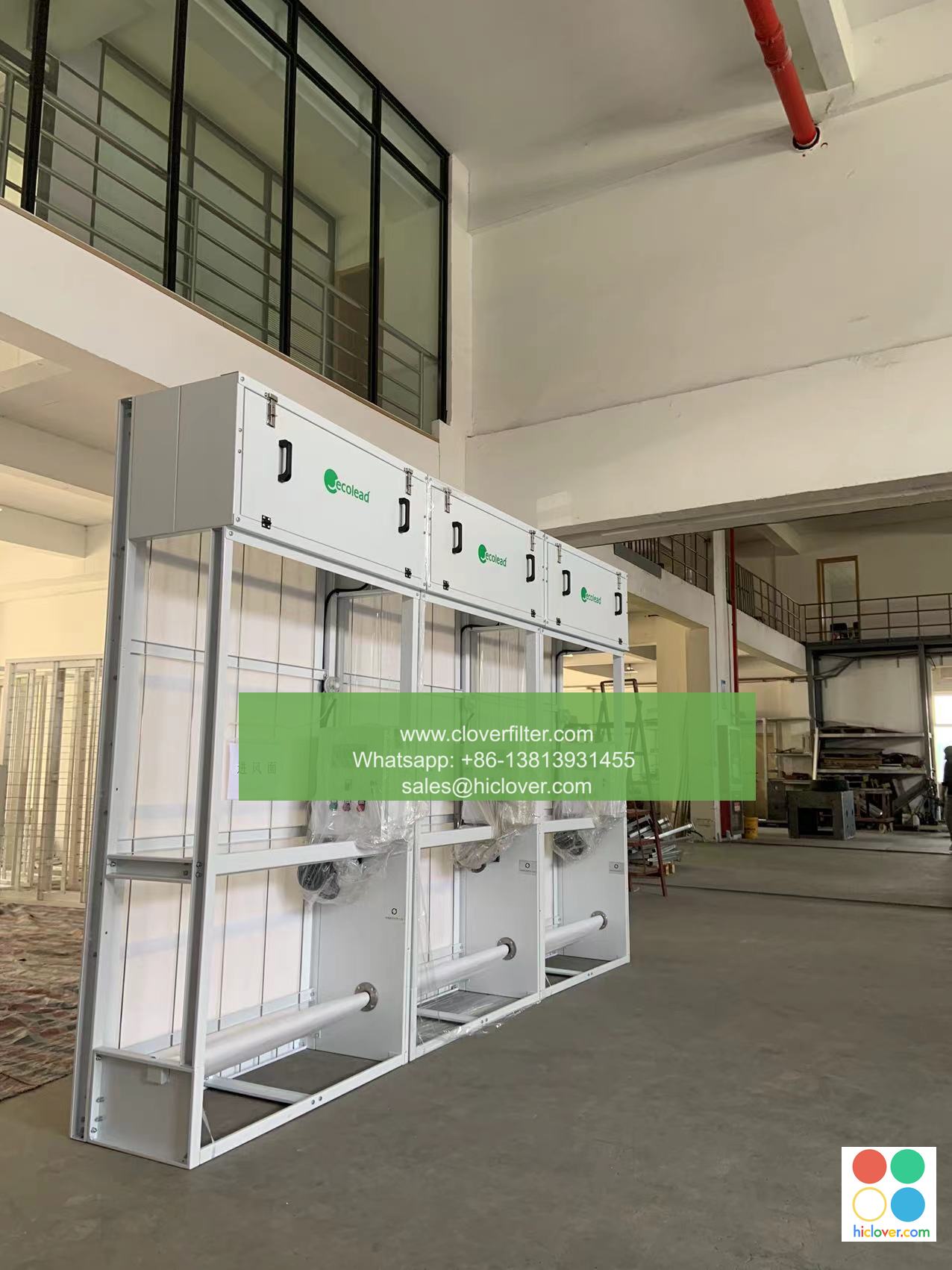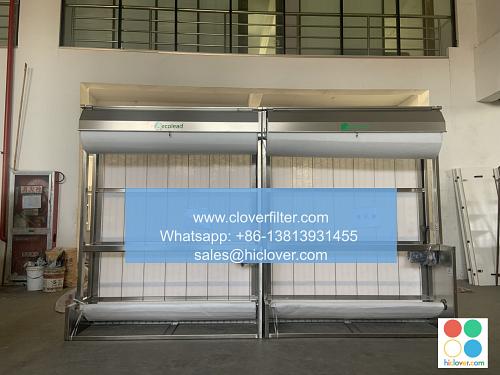The Future of Air Filtration in Markham IT Centers: Automatic Roll Air Filter Trends

The city of Markham, known for its thriving IT industry, is home to numerous data centers and IT facilities that require precise temperature and humidity control to operate efficiently. One crucial aspect of maintaining optimal conditions in these facilities is air filtration. As technology continues to evolve, the future of air filtration in Markham IT centers is likely to be shaped by innovative solutions such as automatic roll air filters. In this article, we will delve into the trends and advantages of automatic roll air filters and their potential impact on the IT industry in Markham.
Air filtration is a critical component of IT facilities, as it helps to remove dust, pollen, and other airborne contaminants that can damage sensitive equipment and compromise performance. Traditional air filtration systems often rely on rigid frame filters that need to be replaced periodically, which can be time-consuming and labor-intensive. Automatic roll air filters, on the other hand, offer a more efficient and convenient solution. These filters consist of a continuous roll of filter media that is automatically advanced as the filter becomes dirty, eliminating the need for manual replacement.
One of the primary benefits of automatic roll air filters is their ability to provide consistent and reliable air filtration. By continuously advancing the filter media, these systems can maintain optimal airflow and filtration efficiency, even in environments with high levels of airborne contaminants. This is particularly important in IT facilities, where equipment is often arranged in close proximity and can be sensitive to even minor changes in temperature and humidity.
Another advantage of automatic roll air filters is their potential to reduce maintenance costs and minimize downtime. Traditional filter replacement can be a time-consuming process, requiring technicians to shut down equipment and replace filters by hand. Automatic roll air filters, by contrast, can be programmed to advance the filter media at regular intervals, eliminating the need for manual intervention. This can help to reduce labor costs and minimize the risk of equipment damage or downtime.
In addition to their practical benefits, automatic roll air filters also offer a range of environmental advantages. By reducing the need for frequent filter replacements, these systems can help to minimize waste and lower the environmental impact of IT facilities. This is particularly important in Markham, where the city is actively working to reduce its carbon footprint and promote sustainable practices.
The trend towards automatic roll air filters is also being driven by advances in technology and manufacturing. Modern filter media is designed to be more efficient and effective, with improved particle capture and airflow characteristics. Additionally, many automatic roll air filter systems now come equipped with advanced sensors and monitoring systems, allowing technicians to track filter performance and optimize maintenance schedules in real-time.
As the IT industry in Markham continues to evolve, it is likely that automatic roll air filters will play an increasingly important role in maintaining optimal conditions in data centers and IT facilities. With their ability to provide consistent and reliable air filtration, reduce maintenance costs, and minimize environmental impact, these systems offer a range of benefits that align with the needs of the IT industry.
While there are many advantages to automatic roll air filters, there are also some potential challenges and considerations to be aware of. For example, these systems can be more expensive to purchase and install than traditional filter systems, although they can offer long-term cost savings through reduced maintenance and energy efficiency. Additionally, automatic roll air filters may require more frequent monitoring and maintenance to ensure optimal performance, although this can be mitigated through the use of advanced sensors and monitoring systems.
In conclusion, the future of air filtration in Markham IT centers is likely to be shaped by innovative solutions such as automatic roll air filters. With their ability to provide consistent and reliable air filtration, reduce maintenance costs, and minimize environmental impact, these systems offer a range of benefits that align with the needs of the IT industry. As technology continues to evolve, it is likely that we will see even more advanced and efficient air filtration solutions emerge, helping to support the growth and development of the IT industry in Markham.
Conclusion
In summary, automatic roll air filters are poised to play a critical role in the future of air filtration in Markham IT centers. With their many benefits and advantages, these systems are likely to become an increasingly important component of IT facilities, helping to maintain optimal conditions and support the growth and development of the industry.
FAQs
Q: What are automatic roll air filters and how do they work?
A: Automatic roll air filters are a type of air filtration system that uses a continuous roll of filter media to provide consistent and reliable air filtration. The filter media is automatically advanced as it becomes dirty, eliminating the need for manual replacement.
Q: What are the benefits of automatic roll air filters?
A: The benefits of automatic roll air filters include consistent and reliable air filtration, reduced maintenance costs, and minimized environmental impact. They also offer a range of practical advantages, including reduced labor costs and minimized downtime.
Q: Are automatic roll air filters more expensive than traditional filter systems?
A: While automatic roll air filters can be more expensive to purchase and install than traditional filter systems, they can offer long-term cost savings through reduced maintenance and energy efficiency.
Q: Do automatic roll air filters require more frequent monitoring and maintenance?
A: Automatic roll air filters may require more frequent monitoring and maintenance to ensure optimal performance, although this can be mitigated through the use of advanced sensors and monitoring systems.


